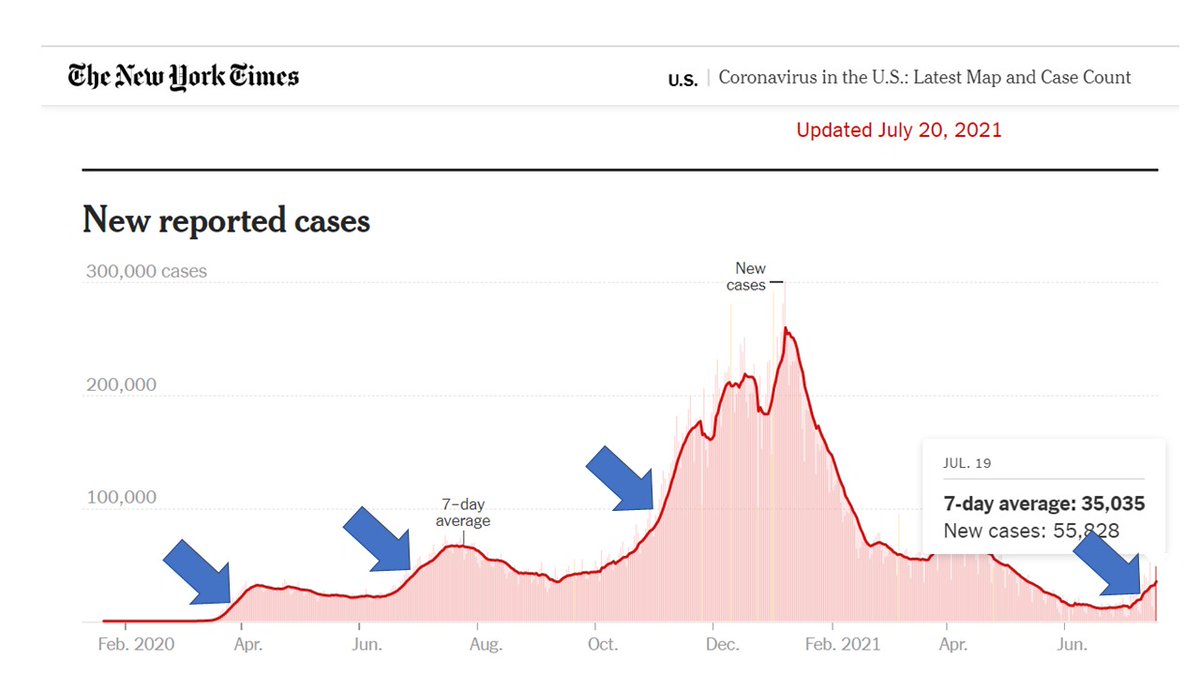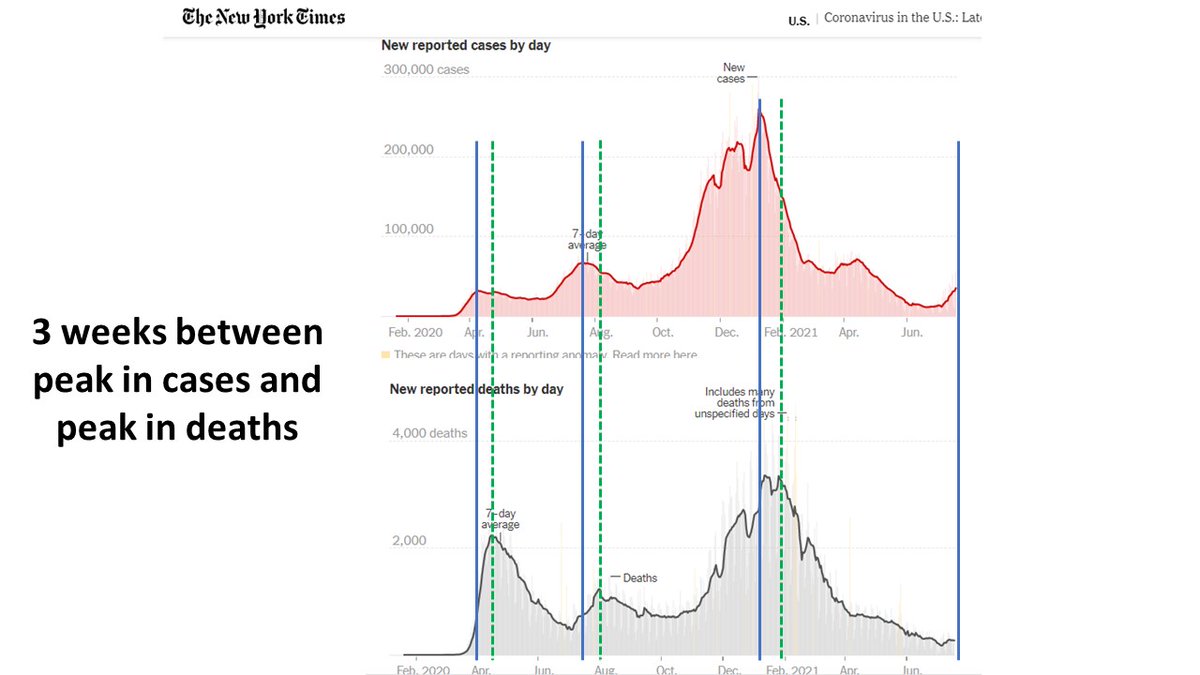
If you're in the US right now, how worried should you be about the recent uptick in COVID cases?
A plain-language thread below.
Long story short - the 4th wave is here, and it's time to start acting now before things get worse. But without hitting the panic button.
A plain-language thread below.
Long story short - the 4th wave is here, and it's time to start acting now before things get worse. But without hitting the panic button.
1. Let's start with the bad news.
Cases are doubling about every 9 days right now - nationwide. This is eerily similar to the rate of increase when each of the previous 3 waves hit. And no state is being spared.
In terms of case counts, the 4th wave is happening. Now.
Cases are doubling about every 9 days right now - nationwide. This is eerily similar to the rate of increase when each of the previous 3 waves hit. And no state is being spared.
In terms of case counts, the 4th wave is happening. Now.

2. COVID deaths are likely to follow.
We generally see a 3-week delay between when cases go up and when deaths increase.
Since cases have only been increasing for 3 weeks now, we haven't seen an increase in deaths - but we will soon.
We generally see a 3-week delay between when cases go up and when deaths increase.
Since cases have only been increasing for 3 weeks now, we haven't seen an increase in deaths - but we will soon.

3. And even though nearly half the population is fully vaccinated, things can still get a lot worse.
In the UK, for example, vaccination levels are very similar to those in the US. And the UK has seen a huge surge - cases are now back where they were in January.
In the UK, for example, vaccination levels are very similar to those in the US. And the UK has seen a huge surge - cases are now back where they were in January.

4. Also - like it or not, we're all in this together.
What began as an outbreak in states like AK, MO, NV has now spread across the country.
Even if vaccination levels are high where you live - if rates are going up in other places, the wave will eventually hit your area too.
What began as an outbreak in states like AK, MO, NV has now spread across the country.
Even if vaccination levels are high where you live - if rates are going up in other places, the wave will eventually hit your area too.

5. But there's also room for hope.
First, the one population in which COVID cases are staying stable is people 65+ years old (because their vaccination levels are much higher).
COVID can kill (or cause long-term effects) at any age. But vaccines are protecting older age groups.
First, the one population in which COVID cases are staying stable is people 65+ years old (because their vaccination levels are much higher).
COVID can kill (or cause long-term effects) at any age. But vaccines are protecting older age groups.

6. Thanks to vaccines, deaths will rise more slowly than cases this time.
In the UK (below), cases have multiplied ~20x, but deaths so far only ~5x.
In the US, this would be ~1300 deaths/day.
That's 25 COVID deaths for every homicide. But still only 40% of what we saw in Jan.
In the UK (below), cases have multiplied ~20x, but deaths so far only ~5x.
In the US, this would be ~1300 deaths/day.
That's 25 COVID deaths for every homicide. But still only 40% of what we saw in Jan.

7. Most importantly, it's not too late to act.
The UK and Portugal were the first 2 countries in Europe hit hard by this wave. Portugal adopted a more proactive approach.
Case rates in Portugal are now 50% those in UK. Plus, deaths are stable, vs doubling every 2 wks in the UK.
The UK and Portugal were the first 2 countries in Europe hit hard by this wave. Portugal adopted a more proactive approach.
Case rates in Portugal are now 50% those in UK. Plus, deaths are stable, vs doubling every 2 wks in the UK.

To summarize, the 4th wave is here.
Cases are doubling every 9 days, deaths will rise soon, and things can get a lot worse before they get better.
But vaccines will make this wave less severe - and if we take action now, we can prevent ~1000 deaths per day in the coming weeks.
Cases are doubling every 9 days, deaths will rise soon, and things can get a lot worse before they get better.
But vaccines will make this wave less severe - and if we take action now, we can prevent ~1000 deaths per day in the coming weeks.
• • •
Missing some Tweet in this thread? You can try to
force a refresh









